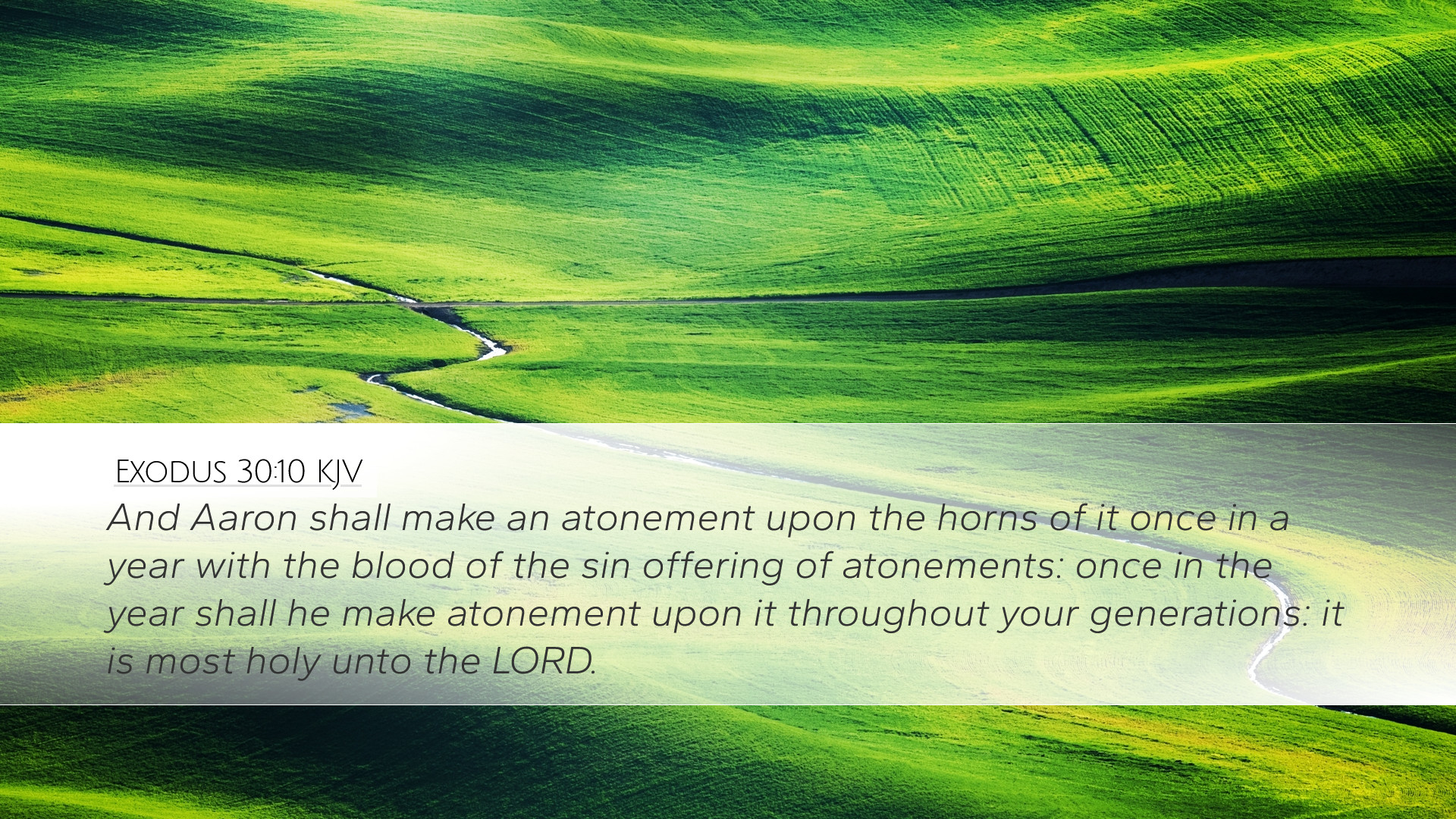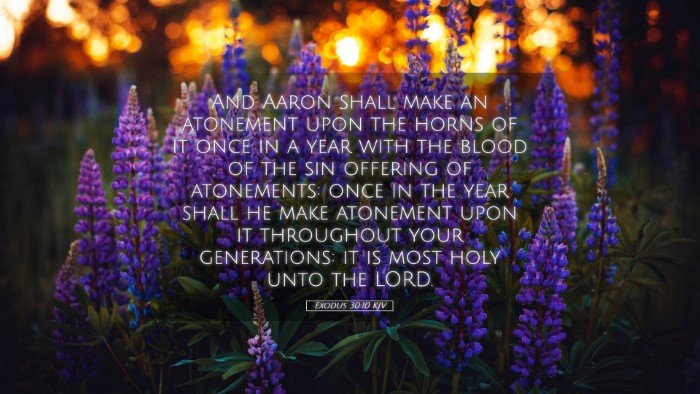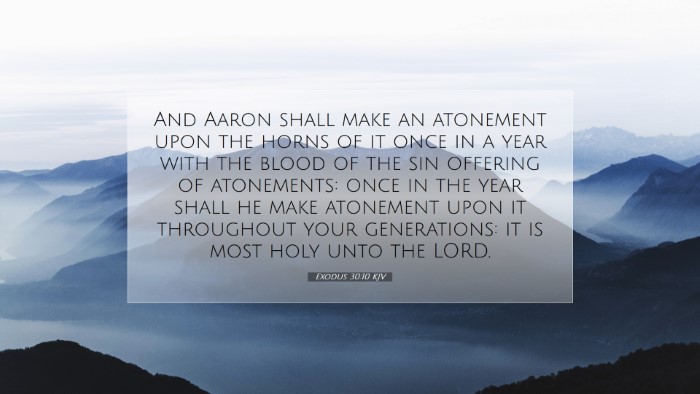Commentary on Exodus 30:10
Bible Verse: "And Aaron shall make an atonement upon the horns of it once in a year with the blood of the sin offering of atonements: once in the year shall he make atonement upon it throughout your generations: it is most holy unto the LORD."
Introduction
This verse is situated at the core of the instructions God gave to Moses regarding the altar of incense within the Tabernacle. The significance of the annual atonement made by Aaron highlights not only the somber reality of sin but also the profound need for divine forgiveness, establishing a critical theological theme for both ancient Israel and modern believers.
Theological Importance of Atonement
Matthew Henry emphasizes that atonement signifies a reconciliation between God and His people. The act of offering blood symbolizes life being given as a payment for the sins which have severed the relationship with God. The altar, being most holy, requires a sacred approach and underscores God's holiness.
Albert Barnes elaborates on the necessity of blood in sacrificial atonement, a recurring theme throughout Scripture. This annual practice represents a continual reminder of the weight of sin and the desperate need for a mediator—here represented by Aaron. It speaks volumes about the seriousness with which sin is viewed by God and the extensive means He provides for atonement.
Historical Context
Adam Clarke provides insights into the historical aspects of this sacrificial system. He notes that the blood of the sin offering represents not just a ritualistic practice but a divine provision for human fallibility. In the context of the Israelites, the annual ritual served to renew their covenant relationship with the Lord, thus maintaining communal and individual responsibilities before God.
Rituals and Their Significance
- Frequency of the Atonement: The yearly occurrence reinforces the idea that sin is an ongoing reality that requires constant representation before God.
- Role of the High Priest: Aaron, as the high priest, symbolizes the embodiment of intercession, reminding believers of Christ’s ultimate sacrifice as the perfect High Priest.
- Symbolism of the Blood: Blood, being the life source, illustrates a critical truth: that life must be willingly surrendered for redemption and restoration.
Spiritual Applications
Matthew Henry encourages believers to reflect on the importance of confession and cleansing. He states that just as the altar required atonement, so too do our hearts need the cleansing blood of Jesus, which secures our relationship with God.
Albert Barnes articulates that this verse invites pastors and theologians to consider the implications of sin within the church. Regular acknowledgment and repentance are vital for spiritual health; the ritual paints a vivid picture of the necessity of maintaining purity within the community of believers.
Implications for Worship
- Understanding Holiness: Recognizing the holiness of God prompts a reverent approach to worship.
- Intercessory Role: Modern-day believers are called to intercede for one another, mirroring the role of Aaron.
- Communal Responsibility: The act of atoning reflects the communal nature of faith—each member partakes in the greater harmony God desires among His people.
Conclusion
Exodus 30:10 encapsulates profound theological truths that resonate throughout the history of redemption. The implications of this ritual of atonement extend from the ancient practices in the tabernacle to the present-day understanding of Christ's atoning work. It is a call to recognize the weight of sin, the holiness of God, and the grace that is extended through Jesus Christ, the Lamb slain for humanity.
This verse reminds us that, while the specifics of the sacrificial system may differ, the heart of God towards sin and redemption remains unchanged. As we reflect on this, let us draw closer to God, in acknowledgment of His holiness and in the assurance found through the blood of the true Lamb.


